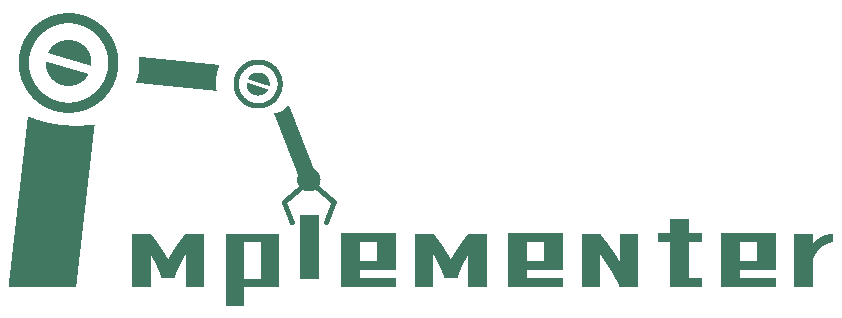The custom plush toy industry has undergone remarkable advancements in recent years, driven by technological innovation and changing consumer demands. Custom plush manufacturers are leveraging cutting-edge innovations to enhance efficiency, improve quality, and deliver unique designs.

Understanding Custom Plush Toys
Custom plush toys are personalized soft toys designed to reflect specific ideas, characters, or themes. They are tailored to meet individual preferences, making them popular for branding, gifting, and personal keepsakes. The creation of custom plush toys combines artistic creativity with technical expertise, ensuring each toy aligns with the customer’s vision.

Key Features
- Personalization: Unique designs based on individual requirements, such as company mascots, beloved characters, or special occasions.
- Material Variety: Plush fabrics like cotton, polyester, or eco-friendly materials are chosen to match the desired texture and durability.
- High Versatility: Suitable for corporate branding, promotional campaigns, children’s toys, and collector’s items.
- Detail-Oriented Craftsmanship: Intricate features such as embroidery, accessories, and custom colors enhance uniqueness.

Traditional Manufacturing Methods of Custom Plush Toys
This traditional approach ensures a high degree of personalization and handcrafted quality but can be less efficient and scalable compared to modern manufacturing techniques.
|
Manufacturing Step |
Process Description |
Key Characteristics |
|
1. Concept Design |
Artists hand-sketch toy designs, outlining shapes, sizes, and details. |
- High reliance on creativity and skill |
|
2. Pattern Creation |
Physical patterns are manually drafted using paper or cardboard to guide fabric cutting. |
- Adjustable templates |
|
3. Fabric Cutting |
Fabrics are cut by hand using scissors or rotary cutters, based on pattern templates. |
- Labor-intensive |
|
4. Sewing & Assembly |
Pieces are sewn together using hand-stitching or simple sewing machines to form the toy’s body. |
- Skilled craftsmanship required |
|
5. Stuffing |
Toys are filled with materials like cotton, wool, or polyester fiber, done manually or with simple tools. |
- Adjustable firmness |
|
6. Detailing |
Features like eyes, embroidery, or appliques are added manually or using basic tools. |
- Offers a personal touch |
|
7. Quality Inspection |
Each toy is visually checked by workers for defects, stitching errors, or loose components. |
- Relies on human judgment |
|
8. Packaging |
Toys are hand-packaged, often with custom wrapping or labeling for an artisanal feel. |
- Easily customizable |

Key Advancements in Manufacturing Custom Plush Toys
1. 3D Design and Virtual Prototyping
The integration of 3D design software has streamlined the prototyping process, enabling designers to create virtual models of plush toys. These tools allow manufacturers to:
- Visualize designs in realistic 3D.
- Adjust dimensions, textures, and features instantly.
- Share prototypes with clients for real-time feedback, reducing production errors.

2. Laser Cutting and Precision Sewing
Laser cutting technology has introduced unparalleled accuracy in fabric cutting, ensuring perfect alignment and minimizing material wastage. Coupled with precision sewing machines, this technology guarantees consistency across batches, even for intricate designs.
3. Smart Customization Platforms
Online customization tools have revolutionized how customers design their plush toys. Using intuitive interfaces, consumers can:
- Select colors, materials, and patterns.
- Add personalized elements like names, logos, or unique shapes.
- Preview the final product in a realistic 3D format before placing an order.
4. Sustainable Materials and Practices
Sustainability has become a cornerstone of modern plush toy manufacturing. Key developments include:
- Eco-Friendly Fabrics: Using materials like organic cotton, bamboo fibers, and recycled polyester.
- Water-Based Dyes: Environmentally safe alternatives for coloring fabrics.
- Zero-Waste Manufacturing: Advanced software to optimize material usage and reduce fabric scraps.
5. Interactive and Smart Features
Technological advancements have enabled plush toys to include interactive features, enhancing user engagement. Examples include:
- Built-in Sensors: React to touch or sound.
- Bluetooth Connectivity: Allow toys to sync with mobile apps for additional functionalities.
- Programmable Features: Enable customization of toy behaviors, such as storytelling or music playback.
6. Automated Production Lines
Automation has revolutionized the manufacturing process, improving speed and consistency while lowering costs. Robots and AI-driven systems are now used for:
- Material Sorting: Ensuring proper selection of fabrics.
- Embroidery and Stitching: Handling detailed designs with precision.
- Quality Control: Automatically detecting defects to maintain high standards.

7. Augmented Reality (AR) for Design and Marketing
Augmented reality has enhanced both the design and marketing aspects of custom plush toys. AR tools allow consumers to:
- Visualize their custom designs in a real-world setting before purchase.
- Experience interactive product demonstrations through their devices.
8. On-Demand and Localized Manufacturing
On-demand production minimizes waste and inventory costs by manufacturing items only when orders are received. Localized manufacturing hubs have also shortened delivery times and reduced environmental impacts associated with shipping.
9. Enhanced Safety Standards
Innovations in testing ensure that plush toys meet strict safety regulations. New technologies are used to assess:
- Material Safety: Verifying that fabrics are non-toxic and hypoallergenic.
- Structural Integrity: Ensuring durability and resistance to wear and tear.
- Choking Hazards: Testing for small, detachable components.
10. Collaborative Design Platforms
Cloud-based platforms enable seamless collaboration between designers, manufacturers, and clients. These tools streamline communication, track progress, and ensure alignment at every stage of the manufacturing process.
Implementer is a leading custom plush toy manufacturer known for seamlessly blending creativity with cutting-edge technology. By adopting advanced manufacturing techniques, Implementer delivers high-quality, fully customized plush toys that meet diverse customer needs. Their commitment to innovation, efficiency, and eco-friendly production ensures exceptional products while supporting a sustainable future.

Final Thoughts
The manufacturing of custom plush toys has been transformed by innovations in technology, materials, and production processes. These advancements not only cater to the growing demand for personalized, high-quality toys but also address environmental and safety concerns. As these innovations continue to advance, the future of custom plush toy manufacturing promises even greater creativity and customization possibilities.







